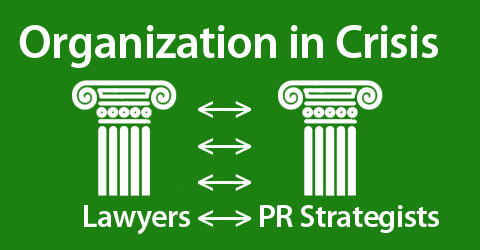 Great timing! I scored my first-ever quote in The New York Times this morning, in the middle of my mother’s visit to Charlotte. (She wanted to post it to the fridge. Old habits die hard.)
Great timing! I scored my first-ever quote in The New York Times this morning, in the middle of my mother’s visit to Charlotte. (She wanted to post it to the fridge. Old habits die hard.)
The full article is linked here and, in my opinion, journalist Peter S. Goodman strikes a nice balance in the article. Here’s the rip-quote with my thoughts:
“Companies that typically handle crises well, you never hear about them,” says James Donnelly, senior vice president for crisis management at the public relations colossus Ketchum, who — like many practitioners contacted for this article — required elaborate promises that he would not be portrayed as speaking about any particular company. “There’s not a lot of news when the company takes responsibility and moves on. The good crisis-management examples rarely end waving the flag of victory. They end with a whisper, and it’s over in a day or two.”
Not bad. The first quote could have been tighter (“…you never hear much about crises that are well managed…”), but I think readers will get the gist.
*** Poll featured below the jump… ***
 One such reader is colleague Bob Page, who wrote a summary blog post that highlights the article’s recurring theme of an inherent conflict between lawyers and communications strategists. Check out his post – Bob raises a very good question on how this conflict can be resolved on behalf of an organization.
One such reader is colleague Bob Page, who wrote a summary blog post that highlights the article’s recurring theme of an inherent conflict between lawyers and communications strategists. Check out his post – Bob raises a very good question on how this conflict can be resolved on behalf of an organization.
In my crisis management experience, I have seen more collaboration than conflict between legal and PR departments. Maybe I’m just lucky. Bob and I swapped a few emails on this and agreed this subject might be poll-worthy.
Hence:
Thanks for participating in the poll.
As always, if you have comments please share them below.
Aug. 26 Update: Gerald Baron and The Arthur Page Society Blog have both provided commentary on the article in The New York Times. In responding to Gerald’s post, I provided a comment that I rather like as an ongoing sound bite. If I may be so bold to quote myself: “In tragedy, the media profiles the human impact. In recovery, the media will report the statistics.”
 Logging you in...
Logging you in...
 Loading IntenseDebate Comments...
Loading IntenseDebate Comments...
Hi James, Your poll asks the excellent question about which function prevails in a crisis. I would love to see a poll which asks which function, if either, SHOULD prevail in a crisis and does a crisis situation differ from non -c risis
Not a bad idea. Thanks.
Tang Hao, a Fulbright Scholar at Randolph-Macon College in Virginia, says it could be worse: “Why Chinese firms don’t apologize,” in http://www.chinadialogue.net. http://www.chinadialogue.net/article/show/single/…
Bob Page
Thanks for sharing, Bob.